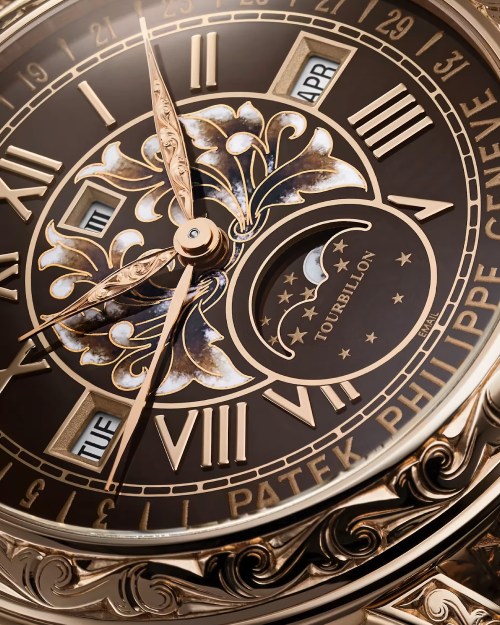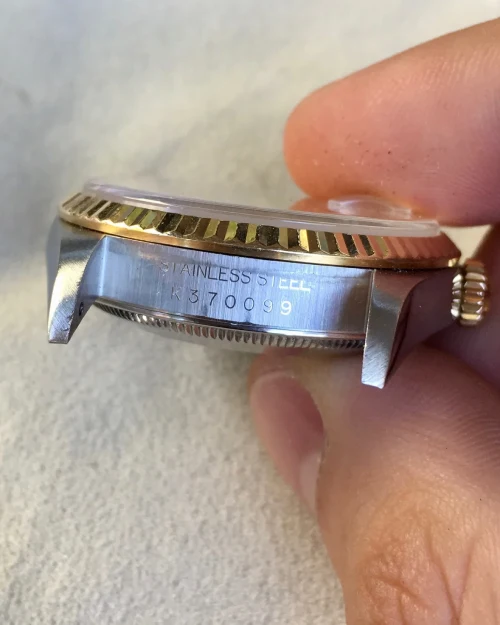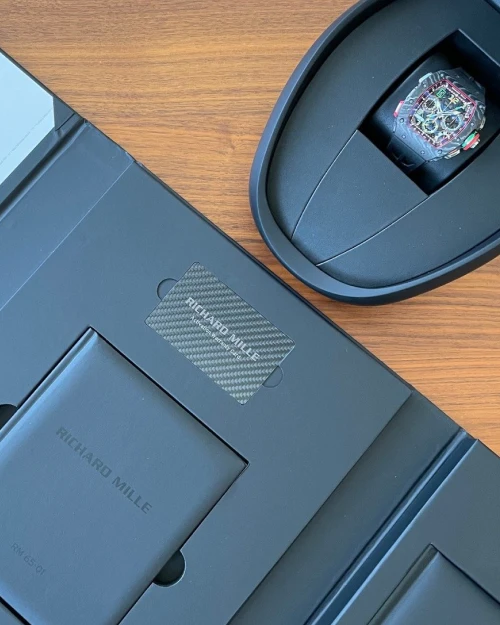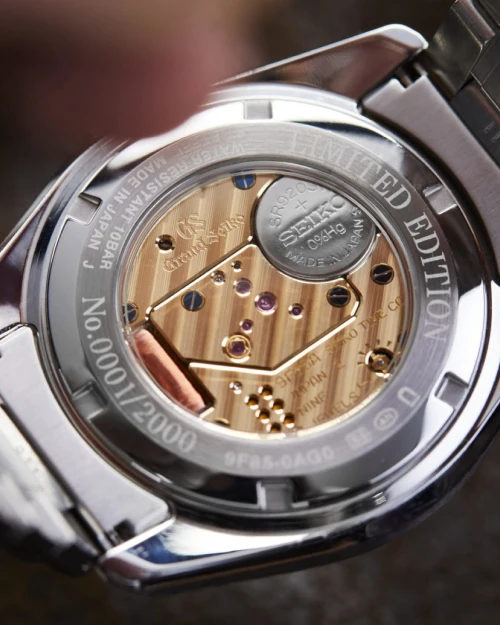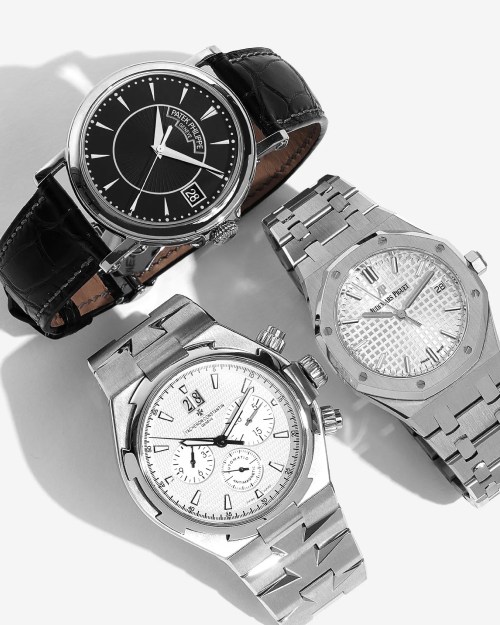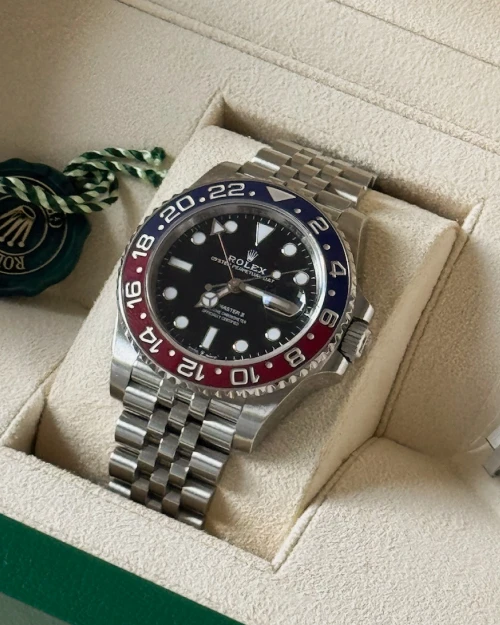How Market Trends Affect the Resale Value of Cartier Watches
January 7, 2025
7 Minutes

Among the pantheon of luxury watches, few names carry the same heritage and timeless appeal as Cartier. Founded in 1847, Cartier has long been celebrated for its ability to marry technical brilliance with avant-garde design. From the simplicity of the Tank to the pioneering spirit of the Santos, each Cartier watch embodies a legacy that transcends fleeting trends. Yet, no matter how enduring a brand may be, the forces of the market play a significant role in determining resale value.
As a savvy collector—or someone who’s simply looking to sell my Cartier watch—understanding market trends can be the difference between a quick sale at a fair price and a protracted, disappointing transaction. In this comprehensive guide, we’ll explore the key market trends shaping the Cartier resale value, delve into the economic and collector-specific factors influencing demand, and highlight strategies for timing your sale. We’ll also showcase how Buy Your Watch provides a secure, global solution for anyone looking to maximize returns—whether you’re located in New York, Australia, or beyond.
1. The Enduring Allure of Cartier Watches
Cartier’s reputation for excellence dates back nearly two centuries. The company originally specialized in jewelry, catering to European royalty and aristocracy before expanding into timepieces. This jewelers’ pedigree shines through in Cartier’s watches, which often feature refined details—beveled edges, high-quality metals, and unique case shapes.
Several factors contribute to Cartier’s enduring allure:
- Iconic Designs: The Cartier Tank, with its rectangular case, was inspired by military tanks in World War I, and remains a blueprint for dress watches. The Santos, meanwhile, was one of the earliest wristwatches for men, testament to Cartier’s role as a pioneer in watch design.
- Brand Heritage: Ownership of a Cartier watch is not just about functionality—it’s about owning a piece of history. This storytelling often resonates with collectors looking for significance and authenticity.
- Versatile Wearability: Cartier’s diverse catalog spans casual, sporty, and formal styles, making the brand universally appealing. A single piece can elevate an everyday ensemble or match the most sophisticated attire.
Given these strengths, Cartier timepieces often hold—or even appreciate in—value on the secondary market. Still, external market trends significantly impact what price you can realistically command when reselling your Cartier.
2. Key Market Trends Influencing Cartier Resale Value
2.1 Shifting Demand in Luxury Watches
The luxury watch industry is fluid, guided by tastes that can change with astonishing speed. In certain periods, robust, sports-oriented watches from brands like Rolex or Audemars Piguet become the must-have pieces. During other times, minimalistic dress watches gain favor, pulling Cartier’s iconic designs back into the limelight.
- Sports vs. Dress Watches: When the market leans toward sporty, large-diameter watches, dressier Cartier models might see a slight dip in demand—though this effect can be offset by Cartier’s unwavering brand prestige.
- Collectibility: Rarity is a powerful force. Limited editions or discontinued Cartier references (like specific Tank variations) may experience sudden spikes in value if collector communities take notice.
- Brand Recognition: Cartier’s name recognition extends beyond watch enthusiasts to the broader public. Even when certain styles fade momentarily from watch aficionado circles, the brand’s universal appeal tends to keep resale values relatively stable.
2.2 Economic Factors and Consumer Confidence
Rolex, Patek Philippe, and Audemars Piguet are often the first to be mentioned in discussions about watch investment. However, Cartier is right up there among sought-after luxury watch brands. The broader economic climate can either buoy or suppress interest in these high-end purchases.
- Recessions: Economic downturns tend to push more sellers into the market, as they look to liquidate assets. This increase in supply can lead to lower prices if demand doesn’t keep pace.
- Boom Periods: Conversely, in a strong economy with high consumer confidence, more buyers are willing to invest in or upgrade their collections, driving up demand for Cartier pieces.
- Currency Fluctuations: For global sellers, exchange rates can significantly affect how profitable it is to sell in one market over another. A weak local currency can make your watch more attractive to international buyers, or vice versa.
2.3 Collector Preferences and Heritage Appeal
Cartier’s legacy resonates strongly with collectors who appreciate the convergence of history, art, and mechanical craftsmanship. The brand’s variety of limited series or vintage references also appeals to niche markets.
- Vintage Craze: Collectors sometimes gravitate to vintage models, seeking unique dial patinas or discontinued design features. Cartier’s storied legacy means certain older references could skyrocket in value if they capture the collective imagination.
- Celebrity Endorsements and Media: A celebrity wearing a rare Cartier piece or a high-profile auction result can trigger a sudden wave of interest. For instance, if a specific Santos model sells above estimate in a major auction, owners of similar references might see increased buyer inquiries.
3. Timing the Market: Why It Matters
Even the most robust Cartier watch could fetch a lackluster price if sold during a market dip. Conversely, an opportune moment—like a brand anniversary or a surge in dress watch popularity—can help you realize a premium.
- Short-Term Windows: Certain events—like major watch shows (Watches & Wonders, auctions at Christie’s, Phillips, and Sotheby’s) or brand announcements—can induce short-lived buyer enthusiasm.
- Long-Term Appreciation: If you’re not in a hurry, waiting for a cyclical upswing in dress watch demand, or an economic boom, can net you higher returns.
- Seasonal Trends: Gift-giving holidays (Christmas, Lunar New Year) can also propel interest in luxury items, impacting your timing strategy. High-income buyers often take advantage of these seasons to acquire prestige pieces.
4. The Importance of Expert Valuation
Determining your Cartier watch’s worth involves more than peeking at eBay listings. An accurate appraisal should factor in:
- Model Rarity
- Condition and Servicing History
- Original Box, Papers, and Receipts
- Brand Trends
- Local and Global Demand
Professional appraisals from a reputed platform—like Buy Your Watch—are indispensable. Experts can tell if your watch has rare design nuances, or if it underwent authorized Cartier service, both of which can elevate its valuation. They also reference real-time transaction data and broader market analyses, offering a more precise estimate than a simplistic “asking price” approach.
5. Popular Cartier Models and Their Resale Dynamics
5.1 Cartier Santos
- Background: Believed to be one of the first wristwatches created specifically for men, the Santos was designed at the request of aviation pioneer Alberto Santos-Dumont.
- Resale Notes: Vintage Santos references or limited re-editions can command particularly high resale values. Well-maintained, modern Santos models also hold their worth, benefiting from the model’s iconic status.
5.2 Cartier Tank
- Background: The Tank line, launched in 1917, exemplifies Cartier’s Art Deco and military-inspired design language.
- Resale Notes: Tanks with unique dial variations, or those associated with historical figures (e.g., Jackie Kennedy’s famous Tank), see heightened collector interest. Condition and original components are key for sustaining or appreciating in value.
5.3 Ballon Bleu de Cartier
- Background: Introduced in 2007, the Ballon Bleu stands out for its rounded case and integrated crown guard, offering a modern Cartier design alternative to the Santos or Tank.
- Resale Notes: Though relatively young, the Ballon Bleu series quickly gained a strong following. Its unisex styling helps maintain a broad market appeal, hence stable resale values.
5.4 Cartier Pasha
- Background: Cartier introduced the Pasha in 1985, rumored to be named after the Pasha of Marrakech. Its round case and distinctive screw-down crown cover present a bolder aesthetic.
- Resale Notes: While not as universally recognized as the Tank or Santos, the Pasha occupies a niche for those seeking something more contemporary yet still brimming with Cartier DNA. Limited editions—particularly chronograph variants—can yield noteworthy resale spikes.
6. Global Perspectives: New York, Australia, and Beyond
In an increasingly connected market, you can sell your Cartier watch from nearly anywhere. Yet, local preferences and economic conditions vary.
- New York: A hub of global finance, New York’s collector scene includes both domestic and international buyers. Auction houses like Christie’s and Sotheby’s can garner strong hammer prices, especially for rare or vintage references.
- Australia: Luxury watch collecting has surged in popularity, bolstered by a stable economy and evolving consumer tastes. Cartier’s brand recognition means consistent local demand. Additionally, the Australian market can see a spike in interest around certain times of the year, like tax return season.
- Asia and Middle East: Regions like Hong Kong, Singapore, and Dubai are recognized powerhouses for luxury watch trading. Cultural events such as Chinese New Year and Ramadan can drive additional spending during specific periods.
By leveraging a global platform like Buy Your Watch, you can tap into a worldwide audience rather than being limited by local economic conditions or buyer availability. This global approach can enhance sale speed and maximize final selling price.
7. Common Pitfalls When Selling a Cartier Watch
Even seasoned sellers can make mistakes that undercut their profits. Here are typical pitfalls to avoid:
- Overpricing or Underpricing: Setting a price too high may discourage serious buyers, while underpricing leaves money on the table.
- Ignoring Condition Factors: Polished-out hallmarks, mismatched parts, or non-original straps can lower collector desirability.
- Poor Timing: Selling during an economic downturn or when brand interest dips can reduce final proceeds.
- Lack of Provenance: Missing documents—original box, papers, or service receipts—can raise buyer questions about authenticity or maintenance, diminishing your watch’s allure.
8. Why Buy Your Watch Is the Trusted Platform for Luxury Transactions
In a landscape crowded with marketplaces and auction sites, Buy Your Watch shines for several key reasons:
8.1 Secure Services
Every transaction is safeguarded. Our procedures ensure that both sellers and buyers can deal with confidence, mitigating risks of counterfeiting or payment fraud. Moreover, we prioritize data privacy, so sensitive details remain protected.
8.2 Expert Appraisals
Our team boasts extensive experience in evaluating Cartier and other high-end watch brands, aligning valuations with current market realities. We meticulously consider your watch’s age, condition, rarity, and documentation.
8.3 Market Insights
Buy Your Watch keeps an active pulse on shifting consumer preferences, auction results, and economic indicators. This intelligence helps sellers pinpoint the ideal time and approach for listing their watches—leading to higher conversion rates.
8.4 Global Reach and Ease
Whether you’re in New York, Australia, or anywhere else, our platform connects you with an international network of collectors and connoisseurs. This expansive audience broadens your chances of finding the perfect buyer quickly and profitably.
9. Tips for Maximizing Your Cartier Watch Resale Value
- Maintain Original Parts: Avoid unnecessary modifications. Cartier bracelets, crowns, or crystals swapped for non-original counterparts hurt collector interest.
- Service with Caution: While a freshly serviced movement can appeal to buyers, ensure you use authorized or reputable watchmakers familiar with Cartier’s craftsmanship.
- Document Everything: Keep receipts, warranty papers, and authenticity certificates safe. They substantiate your asking price.
- Stay Informed: Read watch news, follow collector forums, and watch major auction results to gauge potential interest in your model.
- Choose the Right Platform: A specialized platform like Buy Your Watch ensures you’re reaching qualified buyers rather than casual window-shoppers.
Conclusion
Cartier occupies a unique space in the watchmaking universe—effortlessly blending artistry, heritage, and mechanical prowess into wearable masterpieces. Yet, external market conditions, collector whims, and broader economic climates can all influence how much you’ll receive when you go to sell my Cartier watch. By understanding these market trends and leveraging expert insights, you stand poised to achieve an optimal outcome.
Above all, timing your sale—whether that’s aligning with an economic upswing, capitalizing on collector demand, or simply matching your personal financial goals—can significantly affect the Cartier resale value. An accurate valuation is also paramount to success, ensuring you neither scare off buyers with an inflated tag nor shortchange yourself by underpricing.
That’s where Buy Your Watch comes into play, offering a trusted, efficient, and global solution for luxury watch transactions. Our blend of security measures, expert appraisals, and worldwide reach provides you with a competitive advantage. Whether you’re based in the bustling heart of New York, the dynamic markets of Australia, or anywhere else around the globe, we’re here to make your selling journey seamless and profitable.
Got a Watch to Sell? We’re Buying!
Looking to sell your luxury watch? At Buy Your Watch, we offer:
Instant Payment
No-Fuss Transaction
Fast Valuation
Top Dollar Paid
Got a Watch to Sell? We’re Buying!
Looking to sell your luxury watch? At Buy Your Watch, we offer:
Instant Payment
No-Fuss Transaction
Fast Valuation
Top Dollar Paid
NEED YOUR WATCH REPAIRED? WE’VE GOT YOU COVERED!
Looking to service your luxury timepiece? At Buy Your Watch, we offer:
